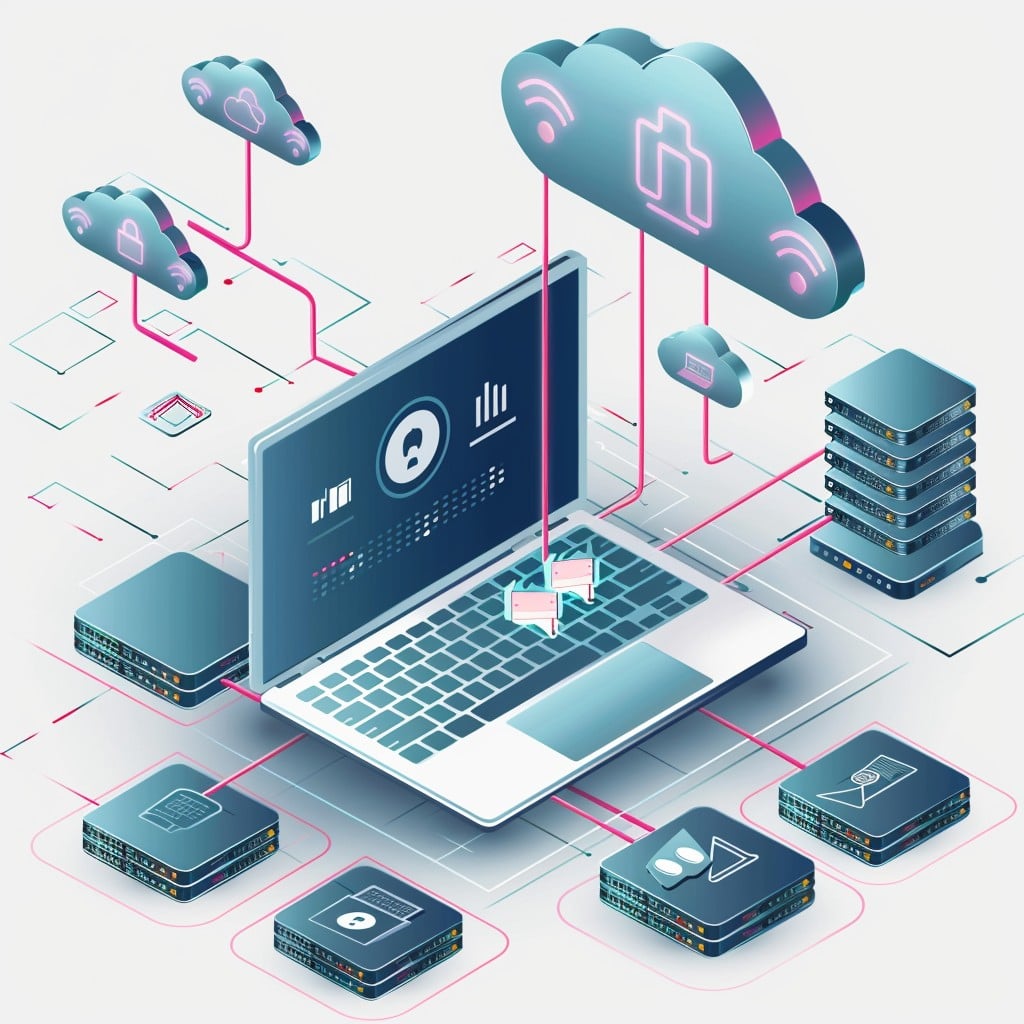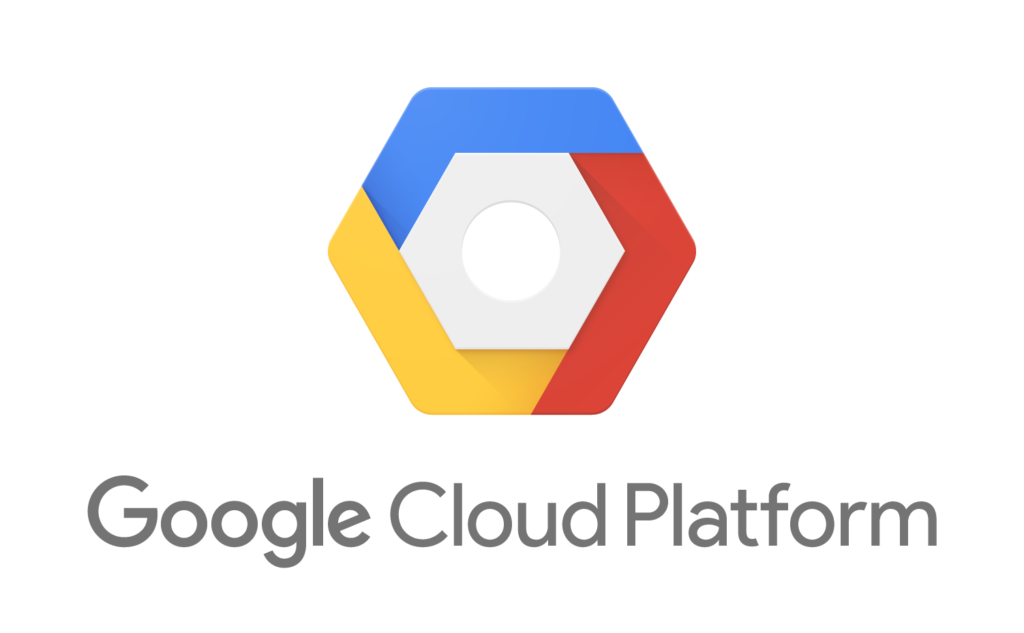Cloud computing jobs refers to the delivery of various computing services over the internet, enabling on-demand access to resources such as storage, processing power, and applications. Instead of purchasing, owning, and maintaining physical servers and data centers, businesses and individuals can access these resources from a cloud service provider. This approach offers greater flexibility, scalability, and cost-efficiency, as users only pay for what they use.
Introduction
1. Definition of Cloud Computing
The term “cloud computing” describes the provision of diverse computing services via the internet, allowing users to access resources like storage, processing power, and apps whenever they need them. Businesses and individuals can access actual servers and data centers from a cloud service provider in place of buying, owning, and maintaining these assets themselves. Because consumers only pay for what they use, this method offers better flexibility, scalability, and cost-efficiency.

Key Components of Cloud Computing:
Infrastructure as a Service (IaaS):
IaaS provides virtualized computing resources over the internet. This includes servers, storage, and networking infrastructure. Users can scale these resources up or down based on their needs, without having to invest in physical hardware.
Platform as a Service (PaaS):
PaaS offers a platform that allows developers to create, run, and manage applications without worrying about the underlying infrastructure. It consists of middleware, databases, and development frameworks, among other tools and services used in application development.
Software as a Service (SaaS):
Software as a Service (SaaS) is provided online, usually by subscription.Users can access these applications via web browsers, without needing to install or maintain them on local devices. Salesforce, Microsoft Office 365, and Google Workspace are a few examples.
Cloud Deployment Models:
Public Cloud:
Services are shared among several organizations and provided via the open internet.Major providers include Amazon Web Services (AWS), Microsoft Azure, and Google Cloud Platform (GCP).
Private Cloud:
Cloud infrastructure offers more control and security because it is devoted to a single company. It may be hosted by a third party source or on-site.
Hybrid Cloud:
Combines public and private clouds, allowing data and applications to be shared between them. This model offers flexibility and optimization of existing infrastructure.

2. Importance and Growth of Cloud Computing in the Modern Tech Landscape
Cloud computing has become a cornerstone of modern business operations, offering several critical benefits that drive its widespread adoption:
Scalability:
Cloud computing allows businesses to scale their IT resources up or down based on demand, providing flexibility to handle varying workloads without significant upfront investment.
Cost-Efficiency:
By utilizing cloud services, businesses eliminate the capital expense of purchasing hardware and software, setting up and running on-site data centers, and maintaining physical infrastructure. Instead, they pay only for the resources they use, turning fixed costs into variable costs.
Accessibility:
Because cloud services are available from any location with an internet connection, they encourage remote collaboration and productivity. This is especially important in the context of the growing trend towards distributed workforces.
Innovation:
Cloud platforms provide a wide array of tools and services that enable businesses to innovate faster. For example, they offer machine learning, big data analytics, and Internet of Things (IoT) capabilities, which can be integrated into business processes to drive growth and efficiency.
Security:
Leading cloud providers implement robust security measures, including data encryption, identity and access management, and compliance with industry standards and regulations. They offer comprehensive security features to protect data and applications from cyber threats.
Growth Statistics:
The growth of cloud computing is evident in various market statistics. According to a report by Gartner, worldwide public cloud revenue is projected to grow significantly, reaching hundreds of billions of dollars in the coming years. This growth is driven by the increasing adoption of cloud services across various industries, from healthcare and finance to retail and manufacturing.

3. Relevance of Cloud Computing Jobs
As cloud computing becomes integral to business operations, the demand for skilled professionals in this field has surged. Cloud computing jobs are among the most sought-after positions in the tech industry, offering lucrative salaries and diverse career opportunities.
Factors Driving Demand for Cloud Computing Professionals:
Digital Transformation:
Businesses are migrating their infrastructure to the cloud to stay competitive, creating a need for experts who can manage and optimize cloud environments.
Data Explosion:
The exponential growth of data generated by businesses and consumers requires scalable storage and processing solutions, driving demand for cloud services and specialists.
Security Concerns:
As cyber threats become more sophisticated, organizations need cloud security experts to safeguard their data and applications.
Innovation in Technologies:
Emerging technologies like artificial intelligence (AI), machine learning (ML), and IoT rely heavily on cloud infrastructure, increasing the need for professionals who can integrate and manage these technologies.
Job Market Trends and Statistics:
Statistics and job market trends highlight the booming demand for cloud computing roles. For example, LinkedIn’s Emerging Jobs Report consistently lists cloud-related positions among the top emerging jobs. Additionally, job boards like Indeed and Glassdoor report thousands of open positions for cloud professionals, with competitive salaries reflecting the high demand for these skills.
Career Opportunities:
Cloud computing offers a wide range of career opportunities, including roles such as cloud architect, cloud engineer, cloud security specialist, cloud developer, and cloud administrator. Each role requires a unique set of skills and qualifications, and there is a growing emphasis on certifications from major cloud providers like AWS, Azure, and Google Cloud.
In summary, the introduction of an article on “Cloud Computing Jobs” should establish a clear understanding of cloud computing, its transformative impact on the tech landscape, and the growing relevance of cloud computing careers. This sets the stage for a detailed exploration of the various roles, skills, education, and career pathways within this dynamic field.

Types of Cloud Computing Jobs
1. Cloud Architect
Role and Responsibilities:
Designing Cloud Solutions:
Cloud architects are responsible for creating the architecture for cloud environments that meet an organization’s technical and business needs. This involves selecting the appropriate cloud services and creating detailed architecture blueprints that ensure scalability, reliability, and security.
Strategic Planning:
They develop strategies for adopting, migrating, and managing cloud services. This includes assessing current infrastructure, planning the transition to the cloud, and determining the best cloud solutions for the organization.
Technical Leadership:
Cloud architects provide guidance and leadership to technical teams, ensuring that all cloud solutions adhere to best practices and are aligned with the organization’s goals.
Performance Optimization:
They monitor the performance of cloud systems and make necessary adjustments to improve efficiency and reduce costs.
Security and Compliance:
Ensuring that cloud architectures comply with security standards and regulatory requirements is a critical part of their role. This includes implementing security measures and conducting regular audits.

Necessary Skills and Qualifications:
Technical Skills:
Expertise in cloud platforms like AWS, Azure, and Google Cloud. Proficiency in infrastructure as code (IaC) tools such as Terraform or CloudFormation, and a deep understanding of cloud architecture patterns.
Soft Skills:
Strong problem-solving abilities, excellent communication skills, and the ability to work collaboratively with various teams.
Qualifications:
An education in computer science or a similar discipline. AWS Certified Solutions Architect, Microsoft Certified: Azure Solutions Architect Expert, and Google Cloud Professional Cloud Architect are examples of relevant certificates.

2. Cloud Engineer
Role and Responsibilities:
Implementation and Management:
Cloud engineers are tasked with implementing, managing, and supporting cloud infrastructure. They set up cloud environments, deploy applications, and ensure their smooth operation.
Automation:
They automate repetitive tasks using scripting and automation tools like Python, Ansible, and Jenkins, improving efficiency and reducing the risk of human error.
Troubleshooting:
Cloud engineers troubleshoot and resolve issues related to cloud infrastructure to minimize downtime and optimize performance.
Migration:
They assist in migrating existing applications and systems to the cloud, ensuring data integrity and minimal disruption during the process.
Security and Compliance:
Ensuring the security of cloud environments and compliance with relevant regulations is also a key responsibility.
Necessary Skills and Qualifications:
Technical Skills:
Proficiency in cloud platforms, experience with containerization tools like Docker and Kubernetes, knowledge of networking, and scripting skills (Python, Bash).
Soft Skills:
Strong analytical abilities, meticulousness, and capacity for pressure-filled labor.
Qualifications:
an education in computer science or a similar discipline.Certifications like AWS Certified DevOps Engineer, Microsoft Certified: Azure DevOps Engineer Expert, or Google Cloud Professional DevOps Engineer.

3. Cloud Security Specialist
Role and Responsibilities:
Security Strategy:
Cloud security specialists develop and implement strategies to protect cloud environments from threats.
Risk Assessment:
They conduct risk assessments to identify vulnerabilities and implement measures to mitigate them.
Security Policies:
Establishing and enforcing security policies and best practices to ensure compliance with industry standards and regulations.
Incident Response:
Responding to security incidents, investigating breaches, and implementing corrective actions.
Monitoring and Auditing:
Continuous monitoring and auditing of cloud environments to detect and respond to potential security threats.
Necessary Skills and Qualifications:
Technical Skills:
Knowledge of cloud security frameworks, experience with security tools (SIEM, IDS/IPS), and an understanding of encryption and identity management.
Soft Skills:
Strong attention to detail, problem-solving skills, and the ability to stay updated with the latest security trends and threats.
Qualifications:
A degree in cybersecurity or a related field. Credentials such as Certified Information Systems Security Professional (CISSP), Certified Cloud Security Professional (CCSP), or AWS Certified Security Specialty.

4. Cloud Developer
Role and Responsibilities:
Application Development:
Cloud developers create applications that run on cloud platforms, leveraging cloud-native services and frameworks.
Integration:
They integrate cloud applications with other systems, ensuring seamless data flow and functionality.
Optimization:
Cloud developers optimize applications for performance, scalability, and cost-efficiency.
Testing and Debugging:
Testing and debugging applications to ensure they function correctly and efficiently in the cloud environment.
Continuous Improvement:
Continuously improving applications by incorporating feedback, updates, and new features.
Necessary Skills and Qualifications:
Technical Skills:
Proficiency in programming languages (Python, Java, Ruby), knowledge of cloud services (AWS Lambda, Azure Functions), and experience with DevOps practices.
Soft Skills:
Creativity, problem-solving abilities, and effective communication.
Qualifications:
A degree in computer science or software engineering. Certifications like AWS Certified Developer, Microsoft Certified: Azure Developer Associate, or Google Cloud Professional Cloud Developer.

5. Cloud Administrator
Role and Responsibilities:
Management:
Cloud administrators manage and maintain cloud environments, ensuring their stability and performance.
User Support:
roviding support to users, addressing issues related to cloud services and applications.
Resource Allocation:
Allocating and managing cloud resources to optimize usage and cost.
Monitoring:
Monitoring cloud environments for performance issues, security threats, and compliance.
Backup and Recovery:
Ensuring data backup and recovery processes are in place and functioning correctly.
Necessary Skills and Qualifications:
Technical Skills:
Knowledge of cloud platforms, experience with system administration, and familiarity with monitoring tools.
Soft Skills:
Excellent multitasking abilities, meticulousness, and organizing capabilities.
Qualifications:
An education in computer science or a similar discipline.Certifications such as AWS Certified SysOps Administrator, Microsoft Certified: Azure Administrator Associate, or Google Cloud Associate Cloud Engineer.

6. Other Related Roles
DevOps Engineer:
Role and Responsibilities:
By automating procedures and guaranteeing continuous integration and delivery, DevOps engineers close the gap between development and operations (CI/CD).They work on creating efficient pipelines for code deployment and collaborate with both development and IT operations teams.
Skills and Qualifications:
Proficiency in cloud platforms, experience with automation tools like Jenkins and Ansible, and knowledge of CI/CD practices. Relevant certifications such as AWS Certified DevOps Engineer, Microsoft Certified: Azure DevOps Engineer Expert, or Google Cloud Professional DevOps Engineer.
Cloud Consultant:
Role and Responsibilities:
Cloud consultants advise organizations on cloud adoption strategies, helping them choose the right solutions and optimize their cloud investments. They analyze the client’s needs, recommend appropriate cloud services, and assist in the implementation process.
Skills and Qualifications:
Strong understanding of cloud technologies, excellent communication and presentation skills, and experience in consulting. Certifications from major cloud providers and relevant experience in cloud projects are beneficial.
Data Engineer:
Role and Responsibilities:
Data engineers design and maintain data pipelines and architectures in the cloud, ensuring data is accessible and usable for analytics and machine learning. They work on data ingestion, transformation, and storage solutions.
Skills and Qualifications:
Proficiency in data processing tools, knowledge of cloud data services (AWS Redshift, Google BigQuery), and experience with SQL and NoSQL databases. Certifications like AWS Certified Big Data – Specialty or Google Cloud Professional Data Engineer are advantageous.
Each of these roles plays a crucial part in the cloud ecosystem, requiring a mix of technical expertise, problem-solving skills, and continuous learning to keep pace with evolving technologies and industry demands.

Essential Skills for Cloud Computing Jobs
1. Technical Skills
a. Cloud Platforms Expertise:
AWS (Amazon Web Services):
One of the most popular cloud computing platforms is AWS.Understanding its core services like EC2 (Elastic Compute Cloud), S3 (Simple Storage Service), RDS (Relational Database Service), Lambda (serverless computing), and VPC (Virtual Private Cloud) is crucial. AWS offers various certifications, such as AWS Certified Solutions Architect, AWS Certified Developer, and AWS Certified SysOps Administrator, which validate your expertise.
Microsoft Azure:
Azure is another leading cloud provider. Key services to master include Azure Virtual Machines, Azure Blob Storage, Azure SQL Database, and Azure Functions. Azure certifications like Microsoft Certified: Azure Solutions Architect Expert and Microsoft Certified: Azure Developer Associate are valuable.
Google Cloud Platform (GCP):
GCP offers services like Compute Engine, Cloud Storage, BigQuery, and Cloud Functions. Certifications such as Google Cloud Professional Cloud Architect and Google Cloud Professional Data Engineer are beneficial.
b. Virtualization and Containerization:
Virtualization:
Understanding how to create and manage virtual machines is essential. Tools like VMware, Hyper-V, and KVM are commonly used.
Containerization:
Docker is the most popular tool for containerization, allowing applications to run consistently across different environments. Kubernetes is widely used for container orchestration, managing containerized applications at scale.
c. Networking:
Networking Concepts:
Knowledge of networking fundamentals, such as IP addressing, DNS, and VPN, is crucial for managing cloud environments.
Cloud Networking:
Understanding how to configure and manage cloud networking services like AWS VPC, Azure Virtual Network, and GCP VPC. This includes setting up subnets, routing, security groups, and network ACLs.
d. Storage and Databases:
Cloud Storage Services:
Familiarity with cloud storage options like AWS S3, Azure Blob Storage, and Google Cloud Storage.
Databases:
Understanding different types of databases (SQL and NoSQL) and cloud database services like AWS RDS, Azure SQL Database, Google Cloud SQL, DynamoDB, Cosmos DB, and Bigtable.
e. Security and Compliance:
Security Best Practices:
Knowledge of cloud security best practices, including identity and access management (IAM), encryption, and network security.
Compliance:
Understanding regulatory requirements (such as GDPR, HIPAA, and SOC 2) and how to ensure cloud environments comply with these standards.
f. Automation and DevOps:
Scripting Languages:
Proficiency in scripting languages like Python, Bash, and PowerShell to automate tasks and processes.
Infrastructure as Code (IaC):
Tools like Terraform, AWS CloudFormation, and Azure Resource Manager (ARM) templates are essential for defining and provisioning infrastructure using code.
CI/CD Tools:
Familiarity with Continuous Integration and Continuous Deployment (CI/CD) tools like Jenkins, GitLab CI, and Azure DevOps to automate the software development lifecycle.

2. Soft Skills
a. Problem-Solving Abilities:
Analytical Thinking:
The ability to analyze complex problems, identify root causes, and develop effective solutions is critical. This involves logical thinking, attention to detail, and a structured approach to problem-solving.
Creativity:
Often, cloud computing professionals need to think outside the box to find innovative solutions to technical challenges.
b. Communication Skills:
Verbal Communication:
The ability to clearly articulate technical concepts and solutions to non-technical stakeholders is crucial. This includes presenting ideas, leading meetings, and collaborating with cross-functional teams.
Written Communication:
Writing lucid and succinct emails, reports, and documentation is crucial.This helps ensure that everyone involved understands the technical details and requirements.

c. Team Collaboration:
Teamwork:
Cloud computing projects often involve collaboration with diverse teams, including developers, IT operations, security, and business stakeholders. Being able to work effectively in a team environment is vital.
Conflict Resolution:
The ability to manage and resolve conflicts within the team, ensuring a productive and harmonious working environment.
d. Time Management:
Prioritization:
The ability to prioritize tasks effectively, ensuring that critical projects and issues are addressed in a timely manner.
Multitasking:
Managing multiple projects and tasks simultaneously while maintaining a high level of performance and quality.

3. Continuous Learning and Adaptability
a. Staying Updated with Technology Trends:
Industry News and Blogs:
Regularly reading industry news, blogs, and whitepapers to stay informed about the latest developments in cloud computing.
Webinars and Conferences:
Attending webinars, conferences, and tech meetups to learn about new technologies and network with other professionals.
b. Earning Certifications:
Certification Programs:
Pursuing relevant cloud certifications from AWS, Azure, and Google Cloud. Having these certificates increases your marketability on the job market by attesting to your knowledge and abilities.
Specializations:
Consider specialized certifications in areas like cloud security, DevOps, and data engineering to enhance your expertise.
c. Experimentation and Hands-On Practice:
Labs and Sandboxes:
Utilizing cloud provider’s free tiers and sandbox environments to experiment with new services and features.
Personal Projects:
Building and managing personal projects on the cloud to gain practical experience and demonstrate your skills.
d. Adaptability:
Embracing Change:
The tech industry evolves rapidly, and cloud professionals must be adaptable, willing to learn new skills, and embrace new technologies.
Problem-Solving Mindset:
Viewing challenges as opportunities to learn and grow, rather than obstacles.
Developing a combination of these technical and soft skills, along with a commitment to continuous learning, will position you well for a successful career in cloud computing.

Education and Certification
1. Educational Background
a. Degree Programs:
Computer Science:
A degree in computer science provides a strong foundation in programming, algorithms, data structures, and computer systems. It covers essential topics like software development, operating systems, and databases, which are fundamental for cloud computing roles.
Information Technology:
An IT degree focuses on the application of technology in business and organizational contexts. It includes coursework in network administration, system management, and cybersecurity, all of which are relevant to cloud computing.
Engineering:
Degrees in computer or software engineering offer a deep understanding of hardware and software integration, system design, and problem-solving skills. These programs often include hands-on projects and internships that provide practical experience.
Other Relevant Degrees:
Degrees in fields like data science, cybersecurity, and business information systems can also be valuable, depending on the specific cloud computing role. These programs provide specialized knowledge that can complement cloud computing skills.

b. Relevant Coursework:
Programming Languages:
Courses in languages like Python, Java, C++, and SQL are crucial as they are commonly used in cloud development and management.
Networking:
Understanding network architecture, protocols, and security is fundamental for cloud infrastructure and operations.
Operating Systems:
Knowledge of Linux and Windows operating systems is essential, as cloud environments often run on these platforms.
Database Management:
Courses on relational and NoSQL databases help in managing and optimizing data storage solutions in the cloud.
Cybersecurity:
Learning about security principles, encryption, and compliance is critical for protecting cloud environments.
Software Development:
Courses in software engineering, DevOps, and Agile methodologies teach best practices for developing and deploying cloud applications.
Cloud Computing Fundamentals:
Some universities offer specific courses or tracks focused on cloud computing, covering topics like cloud architecture, services, and deployment models.
2. Certifications
a. Why Certifications Matter:
Industry Recognition: Certifications from leading cloud providers validate your skills and knowledge, demonstrating to employers that you have the expertise needed for cloud computing roles.
Competitive Advantage: Having certifications can make you stand out in the job market, as they show a commitment to professional development and a mastery of specific cloud technologies.
Career Advancement: Certifications can open up opportunities for career growth, higher salaries, and specialized roles in cloud computing.
b. Popular Cloud Certifications:

AWS (Amazon Web Services):
- AWS Certified Solutions Architect: This certification is aimed at individuals who design and deploy scalable, highly available, and fault-tolerant systems on AWS. It covers topics such as architecture best practices, cost optimization, and security.
- AWS Certified Developer: This certification is for developers who create and maintain applications on AWS. It covers topics like AWS SDKs, security best practices, and troubleshooting.
- AWS Certified SysOps Administrator: This certification is for system administrators who manage and operate systems on AWS. It covers deployment, management, and operational best practices.
- AWS Certified Security Specialty: This certification is designed for individuals who specialize in cloud security. It covers topics like data protection, incident response, and identity and access management.

Microsoft Azure:
- Microsoft Certified: Azure Fundamentals: This entry-level certification is for individuals who want to demonstrate a basic understanding of Azure services, cloud concepts, and Azure pricing.
- Microsoft Certified: Azure Administrator Associate: This certification is for administrators who manage Azure subscriptions, secure identities, and monitor resources. It covers managing Azure resources, implementing and managing storage, and configuring and managing virtual networks.
- Microsoft Certified: Azure Solutions Architect Expert: This advanced certification is for solutions architects who design and implement Azure solutions. It covers compute, network, storage, and security.
- Microsoft Certified: Azure Security Engineer Associate: This certification is for security engineers who manage and secure identity, access, and data in Azure. It covers security operations, data protection, and identity management.

Google Cloud Platform (GCP):
- Google Cloud Associate Cloud Engineer: This certification is for individuals who deploy applications, monitor operations, and manage enterprise solutions on GCP. It covers Google Cloud services, configuring access and security, and monitoring operations.
- Google Cloud Professional Cloud Architect: This certification is for architects who design, develop, and manage secure, scalable cloud solutions on GCP. It covers cloud architecture, security, and operations.
- Google Cloud Professional Data Engineer: This certification is for data engineers who design and build data processing systems on GCP. It covers data processing, machine learning, and data analysis.
c. Specialized Certifications:
Security:
- Certified Information Systems Security Professional (CISSP): This certification is for IT professionals who design and manage the security of their organization’s IT infrastructure. It covers security and risk management, asset security, and security architecture.
- Certified Cloud Security Professional (CCSP): This certification is for professionals who manage cloud security. It covers cloud architecture, governance, risk, and compliance.
DevOps:
- AWS Certified DevOps Engineer: This certification is for DevOps engineers who automate the testing and deployment of AWS infrastructure and applications. It covers continuous integration and delivery, security, and monitoring.
- Microsoft Certified: Azure DevOps Engineer Expert: This certification is for DevOps engineers who combine people, process, and technologies to deliver valuable products and services. It covers DevOps practices, source control, and continuous integration and delivery.
Data:
- AWS Certified Big Data – Specialty: This certification is for individuals who design and implement AWS services to derive value from data. It covers data analytics, data storage, and data processing.
- Google Cloud Professional Data Engineer: This certification is for data engineers who design and build data processing systems on GCP. It covers data processing, machine learning, and data analysis.
d. How to Choose the Right Certification:
Career Goals:
Identify your career goals and choose certifications that align with your desired job role. For example, if you want to be a cloud architect, consider certifications like AWS Certified Solutions Architect or Microsoft Certified: Azure Solutions Architect Expert.
Experience Level:
Select certifications that match your current skill level. Entry-level certifications like AWS Certified Cloud Practitioner or Microsoft Certified: Azure Fundamentals are good starting points for beginners, while more advanced certifications like Google Cloud Professional Cloud Architect are suitable for experienced professionals.
Industry Demand:
Research the demand for specific certifications in your region or industry. Some certifications may be more valued by employers in certain sectors.

3. Continuous Learning
a. Online Courses and MOOCs:
Platforms:
Websites like Coursera, edX, Udacity, and LinkedIn Learning offer a wide range of cloud computing courses. These platforms often provide courses created by universities and industry experts.
Topics:
Courses cover various topics, from cloud fundamentals and specific cloud services to advanced topics like cloud architecture, security, and DevOps.
b. Hands-On Practice:
Cloud Labs:
Many cloud providers offer hands-on labs and sandbox environments where you can practice using their services. AWS, Azure, and Google Cloud all provide free tiers and trial accounts that allow you to explore their platforms.
Personal Projects:
Building personal projects in the cloud is a great way to gain practical experience. This could include creating a personal website, setting up a cloud-based database, or developing a cloud-native application.
c. Professional Development:
Workshops and Bootcamps:
Attending workshops and bootcamps can provide intensive, hands-on training in cloud computing. These programs often cover specific topics or skills and are led by industry professionals.
Certifications Renewal:
Many cloud certifications require renewal after a certain period, ensuring that professionals stay current with the latest technologies and best practices.
d. Networking and Community Involvement:
User Groups and Meetups:
Joining cloud computing user groups and attending meetups can help you network with other professionals, share knowledge, and stay informed about industry trends.
Conferences and Events:
Attending industry conferences and events, such as AWS re Microsoft Ignite, and Google Cloud Next, provides opportunities to learn from experts, participate in hands-on labs, and network with peers.
By pursuing relevant education, obtaining industry-recognized certifications, and engaging in continuous learning and professional development, you can build a solid foundation for a successful career in cloud computing.

Job Search and Career Development
1. Job Search Strategies
a. Online Job Portals:
Popular Platforms:
Websites such as LinkedIn, Indeed, Glassdoor, and Monster are essential for job searching. They provide vast databases of job listings where you can filter opportunities based on location, job type, and industry. LinkedIn also allows you to network and connect directly with hiring managers.
Job Alerts:
Most job portals offer job alert features where you can set criteria for the roles you are interested in. You will receive email notifications whenever a new job posting matches your criteria, ensuring you never miss an opportunity.
Company Websites:
Many companies list job openings on their official websites, sometimes even before they appear on job portals. Regularly checking the careers section of companies you want to work for can give you a head start in the application process.
Specialized Job Boards:
Platforms like Dice, Stack Overflow Jobs, and AngelList cater specifically to tech roles. These specialized job boards often have more targeted listings relevant to cloud computing professionals, making them valuable resources for finding niche roles.
b. Networking:
Professional Networks:
It’s vital to establish a robust professional network. Join industry conferences, seminars, and get-togethers to establish connections with other experts.Networking can lead to job referrals and provide insights into job openings not advertised publicly.
LinkedIn:
LinkedIn is a powerful tool for professional networking. Use it to connect with other professionals, join relevant groups, and engage with industry-related content. Sending personalized messages to your connections can open doors to new opportunities.
Alumni Networks:
Your university’s alumni network can be a valuable resource. Alumni working in cloud computing can provide advice, mentorship, and potential job leads. Participating in alumni events and groups can enhance your network.
Mentorship:
Finding a mentor in the cloud computing field can guide your career path. A mentor can provide valuable insights, help you navigate your job search, and introduce you to other industry professionals.

c. Recruitment Agencies:
Tech-Specific Recruiters:
Some recruitment agencies specialize in tech and cloud computing roles. These agencies have relationships with tech companies and can match your skills with job openings, sometimes even for roles not publicly advertised.
Contract vs. Permanent Roles:
Recruitment agencies can help you find both contract and permanent positions. Starting with a contract position can provide valuable experience and can sometimes lead to permanent employment.
d. Social Media:
Brand Building:
Use social media platforms to build your professional brand. Share industry news, write articles, and participate in discussions related to cloud computing. The attention of hiring managers and recruiters may be drawn by this visibility.
Job Postings:
Follow companies and industry leaders on platforms like Twitter and LinkedIn to stay informed about job openings. Many companies announce job opportunities through their social media channels.
Engagement:
Actively engaging with posts and joining discussions on social media can showcase your expertise and help you connect with key influencers in the industry.

2. Resume and Portfolio
a. Crafting a Cloud Computing Resume:
Content Tailored:
Make your resume unique for every job application.Highlight relevant skills, experiences, and certifications that match the job description. Hiring supervisors are more likely to notice you if you do this.
Technical Skills Section:
Include a detailed technical skills section. List your proficiency with cloud platforms (AWS, Azure, GCP), programming languages, tools, and technologies. This helps recruiters quickly assess your technical expertise.
Projects and Achievements:
Highlight cloud-related projects and achievements. Provide specific details about the projects, such as technologies used, your role, and the impact of your work. Quantify your achievements where possible (e.g., improved system performance by 30%).
Certifications:
List all relevant certifications prominently. Add the names of the certifications, the organizations that issued them, and the completion dates.Certifications from reputable organizations validate your skills and enhance your resume.
Experience Section:
Focus on cloud computing roles and responsibilities in your work experience. Use bullet points to describe your tasks and accomplishments clearly. Emphasize your contributions and the outcomes of your work.
b. Building a Portfolio:
Showcase Projects:
Create a portfolio that showcases your cloud computing projects. Include detailed descriptions, screenshots, and links to live projects or repositories. This visual representation of your work can impress potential employers.
GitHub:
Store your code and projects on GitHub.Share repositories publicly to demonstrate your coding skills and contributions to cloud projects. A well-maintained GitHub profile can be a strong addition to your portfolio.
Blogs and Articles:
Write blogs and articles about cloud computing topics. Share your knowledge, experiences, and insights to establish yourself as an expert in the field. Publishing on platforms like Medium or LinkedIn can increase your visibility.
Personal Website:
Consider creating a personal website to showcase your portfolio, resume, blog, and contact information. This serves as a central hub for potential employers to learn about you and your work.

3. Interview Preparation
a. Understanding Common Interview Questions:
Technical Questions:
Prepare for technical questions related to cloud platforms, services, and concepts. Practice explaining topics like cloud architecture, networking, security, and data management. Familiarize yourself with questions specific to the job role.
Behavioral Questions:
Be ready to answer behavioral questions that assess your soft skills. To organize your responses, use the STAR (Situation, Task, Action, Result) technique.Practice common behavioral questions like describing a challenging project or how you handled a conflict in a team.
Scenario-Based Questions:
Employers may present scenarios to evaluate your problem-solving abilities. Practice answering questions that involve troubleshooting, designing solutions, and optimizing cloud environments. Think through how you would handle real-world challenges.
b. Practicing Technical Skills:
Coding Interviews:
Prepare for coding interviews by practicing problems on platforms like LeetCode, HackerRank, and CodeSignal. Focus on algorithms, data structures, and problem-solving techniques. Simulate coding interviews to improve your performance.
Hands-On Labs:
Use cloud provider platforms (AWS, Azure, GCP) to complete hands-on labs and exercises. This helps you gain practical experience and familiarity with cloud services. Completing labs can also help you prepare for certification exams.
Mock Interviews: To replicate the interview process, take part in mock interviews.Seek feedback from peers, mentors, or professionals to improve your performance. You might feel more confident and less anxious by participating in mock interviews.
c. Showcasing Soft Skills:
Communication:
Demonstrate clear and effective communication during the interview. Practice explaining technical concepts to non-technical audiences. Effective communication is a crucial component of working with stakeholders and other team members.
Teamwork:
Highlight experiences where you worked collaboratively in a team. Discuss your role, contributions, and how you resolved conflicts or challenges. Employers value candidates who can work well in a team environment.
Problem-Solving:
Emphasize your problem-solving abilities by sharing examples of how you identified issues, developed solutions, and implemented them successfully Candidates with the ability to think critically and solve problems quickly are sought after by employers.
4. Career Advancement

a. Setting Career Goals:
Short-Term Goals:
Define clear, achievable short-term goals. These could include earning certifications, completing specific projects, or acquiring new skills. Short-term goals help you stay focused and motivated.
Long-Term Goals:
Outline your long-term career aspirations. Consider where you want to be in five or ten years and the steps needed to get there. Long-term goals provide direction and help you make strategic career decisions.
Regular Review:
Regularly review and adjust your career goals based on your progress and changes in the industry. Periodic review helps you stay on track and adapt to new opportunities.
b. Continuing Education:
Advanced Certifications:
Pursue advanced certifications to deepen your expertise in specific areas of cloud computing, such as security, data engineering, or architecture. Advanced certifications can enhance your credentials and career prospects.
Graduate Degrees:
Consider advanced degrees, such as a master’s in cloud computing, data science, or cybersecurity, to enhance your knowledge and career prospects. Graduate programs often offer specialized courses and research opportunities.
Specialized Training:
Enroll in specialized training programs and courses to stay updated with the latest technologies and best practices in cloud computing. In an industry that is changing quickly, lifelong learning is crucial.
c. Networking and Professional Development:
Professional Associations:
Join professional associations like the Cloud Native Computing Foundation (CNCF) and the International Association of Cloud & Technology Professionals (IACTP). These groups provide events, information, and networking opportunities.
Conferences and Seminars:
Attend industry conferences and seminars to learn from experts, participate in workshops, and network with peers. Conferences can provide valuable insights into industry trends and new technologies.
Mentorship and Coaching:
Seek mentorship from experienced professionals in the cloud computing field. A mentor can provide guidance, feedback, and career advice. Coaching can help you develop specific skills and achieve your career goals.
d. Keeping Up with Industry Trends:
Industry News:
Follow industry news, blogs, and podcasts to stay informed about the latest developments in cloud computing. Keeping up to date enables you to anticipate changes and adjust fast.
Webinars and Online Courses:
Participate in webinars and online courses to learn about new technologies, tools, and best practices. Online learning platforms offer a convenient way to continue your education.
Community Involvement:
Engage with the cloud computing community through forums, discussion groups, and open-source projects. This helps you stay connected and learn from others. Community involvement can also lead to new opportunities.
e. Seeking New Opportunities:
Internal Promotions:
Internal Promotions: Seek out chances to progress within your present company. Express your interest in new roles, projects, and responsibilities to your manager. Internal promotions can provide career growth and new challenges.
Lateral Moves:
Consider lateral moves to gain diverse experience and expand your skill set. Moving to a different department or taking on a new role can provide valuable insights and opportunities. Lateral moves can enhance your versatility and career prospects.
External Opportunities:
Keep an eye on job openings at other companies. Sometimes, moving to a new organization can offer better growth prospects and new challenges. External opportunities can provide a fresh start and new experiences.
By leveraging these job search strategies, enhancing your resume and portfolio, preparing thoroughly for interviews, and focusing on continuous career development, you can successfully navigate the cloud computing job market and achieve your career goals.

Challenges and Future of Cloud Computing Jobs
1. Challenges in Cloud Computing Jobs
a. Rapid Technological Changes:
Keeping Up-to-Date:
The cloud computing industry evolves rapidly with new technologies, tools, and best practices emerging frequently. To remain current, professionals need to upgrade their knowledge and abilities on a regular basis.This involves investing time in learning new platforms, understanding evolving standards, and adapting to changes in cloud services.
Continuous Learning:
To keep pace with technological advancements, cloud professionals need to engage in ongoing education through courses, webinars, and certifications. This can be challenging given the fast pace of change and the breadth of technologies involved.
b. Security and Compliance Issues:
Data Privacy:
Ensuring data privacy in cloud environments is a major concern. Cloud providers must comply with regulations like GDPR (General Data Protection Regulation) and CCPA (California Consumer Privacy Act), which require stringent measures to protect personal data.
Security Threats:
Cloud environments are vulnerable to various security threats, including data breaches, DDoS (Distributed Denial of Service) attacks, and insider threats. Cloud professionals must implement robust security measures, including encryption, access controls, and continuous monitoring.
Compliance:
Adhering to industry-specific regulations and standards can be complex. Organizations must ensure their cloud operations comply with relevant laws and regulations, which may vary by region and industry.
c. Skill Gaps and Talent Shortages:
Skill Shortages:
The demand for cloud computing professionals often outpaces the supply of skilled workers. Many organizations struggle to find candidates with the necessary expertise, creating a competitive job market.
Skill Gaps:
The rapid advancement of cloud technologies can create skill gaps. Professionals may find that their existing skills are insufficient for new roles or technologies, necessitating continuous learning and upskilling.
d. Cost Management:
Budget Overruns:
Cloud computing can lead to unexpected costs if resources are not managed effectively. Issues such as over-provisioning, lack of cost monitoring, and inefficient resource utilization can result in budget overruns.
Cost Optimization:
Cloud professionals must develop strategies for cost optimization, such as implementing auto-scaling, rightsizing resources, and utilizing reserved instances. Managing cloud costs requires a thorough understanding of pricing models and billing practices.
e. Integration and Migration Challenges:
Complex Migrations:
Migrating existing applications and data to the cloud can be complex and time-consuming. Challenges include compatibility issues, data transfer difficulties, and potential downtime.
Integration:
Integrating cloud services with existing on-premises systems and applications can be challenging. Ensuring seamless integration requires careful planning and execution, as well as addressing potential issues with data consistency and interoperability.
f. Vendor Lock-In:
Dependency on Providers:
Relying heavily on a single cloud provider can lead to vendor lock-in, where it becomes difficult to switch providers or migrate to another platform. This can limit flexibility and increase dependency on the chosen provider’s pricing and services.
Mitigating Lock-In:
To mitigate vendor lock-in, professionals should adopt strategies such as using multi-cloud approaches, leveraging open standards, and designing applications to be portable across different cloud environments.

2. Future Trends in Cloud Computing Jobs
a. Increasing Demand for Cloud Professionals:
Growing Cloud Adoption:
As more organizations move to the cloud, the demand for cloud computing professionals is expected to continue growing. Cloud technologies are becoming integral to businesses of all sizes and industries, driving the need for skilled workers.
New Job Roles:
The evolving cloud landscape is creating new job roles and specializations. Roles such as cloud architects, cloud security specialists, and cloud data engineers are becoming increasingly common, offering new opportunities for professionals.
b. Emergence of New Technologies:
Artificial Intelligence (AI) and Machine Learning (ML):
AI and ML are becoming integral to cloud services, enabling advanced analytics, automation, and predictive capabilities. Cloud professionals will need to develop expertise in these technologies and understand how to integrate them into cloud solutions.
Edge Computing:
Edge computing involves processing data closer to the source of data generation, reducing latency and improving performance. As edge computing becomes more prevalent, cloud professionals will need to understand its implications and how to manage and integrate edge devices with cloud infrastructure.
Serverless Computing:
Serverless architectures allow developers to build and run applications without managing servers. This trend is growing, and professionals will need to understand serverless models and how to design applications that take advantage of these technologies.

c. Evolution of Cloud Service Models:
Hybrid Cloud Environments:
Many organizations are adopting hybrid cloud strategies, combining public and private clouds. Cloud professionals will need to manage and integrate these hybrid environments effectively, addressing challenges related to interoperability and data consistency.
Multi-Cloud Strategies:
Multi-cloud approaches involve using services from multiple cloud providers. This trend can provide greater flexibility and resilience but also introduces complexity in terms of management, integration, and cost optimization.
d. Focus on Cloud Security and Compliance:
Enhanced Security Measures:
With increasing concerns about data breaches and cyber threats, there will be a growing focus on cloud security. Cloud professionals will need to stay updated on the latest security practices, tools, and technologies to protect cloud environments.
Regulatory Compliance:
As regulations continue to evolve, professionals will need to ensure that cloud operations comply with new and existing laws. This includes understanding and implementing compliance requirements specific to different industries and regions.
e. Emphasis on Cloud Cost Management:
Advanced Cost Optimization Techniques:
With the growing complexity of cloud pricing models, professionals will need to employ advanced cost optimization techniques. This includes utilizing AI-driven cost management tools and implementing strategies to minimize waste and optimize resource utilization.
Financial Management Skills:
Cloud professionals may need to develop financial management skills to effectively manage and forecast cloud costs. Understanding cost allocation, budgeting, and financial planning will become increasingly important.
f. Skills and Certification Evolution:
Evolving Certifications:
Cloud certification programs will continue to evolve to reflect new technologies and practices. Professionals will need to pursue updated certifications and continuous learning to stay current with industry standards and advancements.
Soft Skills Development:
In addition to technical skills, soft skills such as communication, leadership, and project management will become increasingly important. Cloud professionals will need to balance technical expertise with strong interpersonal and management skills.
g. Increased Automation and DevOps Integration:
Automation Tools:
Automation tools and frameworks will play a larger role in cloud computing, streamlining processes and improving efficiency. Cloud professionals will need to become proficient in using automation tools to manage and deploy cloud resources.
DevOps Practices:
The integration of DevOps practices with cloud computing will continue to grow. Professionals will need to understand DevOps methodologies, including continuous integration and continuous delivery (CI/CD), and how they apply to cloud environments.
By addressing these challenges and staying abreast of future trends, cloud computing professionals can navigate the evolving landscape of the industry, seize new opportunities, and advance their careers effectively.
Cloud computing offers a wide range of roles and specializations. Identify your interests and strengths to explore career paths that align with your skills and aspirations, whether in architecture, engineering, security, or management.
Take advantage of the diverse opportunities available in cloud computing. Whether you are starting out or looking to advance, actively seek roles and projects that align with your career goals and provide growth potential.
In conclusion, cloud computing jobs offer a wealth of opportunities and present unique challenges. By understanding the key aspects of the field, addressing current challenges, embracing future trends, and investing in personal development, you can navigate the cloud computing landscape effectively and achieve long-term career success.
You can Contact Us for any question regarding this article.

FREQUENTLY ASKED QUESTIONS
1. What is cloud computing, and why is it important for businesses?
The provision of computer services via the internet (the cloud), including servers, storage, databases, networking, software, and analytics, is referred to as cloud computing. It allows businesses to access these resources on-demand and scale them as needed, reducing the need for physical hardware and providing flexibility, cost savings, and efficiency. Cloud computing is crucial for businesses because it supports innovation, enhances operational agility, and offers scalable solutions to meet varying demands.
2. What types of jobs are available in cloud computing?
Cloud computing offers a wide range of job roles, including:
- Cloud Architect: Designs and manages cloud infrastructure and solutions.
- Cloud Engineer: Implements and maintains cloud systems and services.
- Cloud Developer: Cloud developers create and implement cloud-based applications.
- Cloud Security Specialist: Ensures the security and compliance of cloud environments.
- Cloud Consultant: Provides expert advice on cloud strategy and solutions.
- Cloud DevOps Engineer: Integrates development and operations for efficient cloud deployment.
- Cloud Data Engineer: Manages and optimizes cloud data storage and processing.
3. What are the essential skills needed for a career in cloud computing?
Essential skills for cloud computing careers include:
- Technical Skills: Proficiency in cloud platforms (AWS, Azure, GCP), programming languages (Python, Java), and understanding of cloud architecture and services.
- Soft Skills: Strong problem-solving abilities, communication skills, and teamwork.
- Security Knowledge: Understanding of cloud security practices and compliance requirements.
- Cost Management: Skills in managing and optimizing cloud costs.
4. What educational background is required for cloud computing jobs?
A background in computer science, information technology, or a related field is commonly required. Many roles also benefit from specialized education in cloud computing or related disciplines. Advanced degrees (e.g., master’s) and relevant certifications can further enhance career prospects and expertise.
5. Which certifications are beneficial for cloud computing professionals?
Beneficial certifications for cloud computing professionals include:
- AWS Certified Solutions Architect
- Microsoft Certified: Azure Solutions Architect Expert
- Google Cloud Professional Cloud Architect
- Certified Cloud Security Professional (CCSP)
- AWS Certified DevOps Engineer
- CompTIA Cloud+
6. How can I find a in cloud computing jobs?
To find a job in cloud computing, consider:
- Using Online Job Portals: Sites like LinkedIn, Indeed, and Glassdoor offer numerous cloud computing job listings.
- Networking: Connect with industry professionals through events, conferences, and online platforms like LinkedIn.
- Recruitment Agencies: Engage with agencies specializing in tech and cloud computing roles.
- Company Websites: Check the careers sections of companies that interest you for job openings.
- Social Media: Follow companies and industry leaders to stay updated on job opportunities.
7. What are the common challenges in cloud computing jobs?
Common challenges include:
- Keeping Up with Rapid Technological Changes: Staying updated with evolving cloud technologies and practices.
- Managing Security and Compliance: Ensuring data privacy, security, and regulatory compliance.
- Addressing Skill Gaps and Talent Shortages: Navigating a competitive job market and continuously developing relevant skills.
- Cost Management: Controlling and optimizing cloud expenditures.
8. What are the future trends in cloud computing jobs?
Future trends include:
- Increased Demand for Cloud Professionals: Growing adoption of cloud technologies across industries.
- Emergence of New Technologies: Integration of AI, ML, edge computing, and serverless computing into cloud services.
- Evolution of Cloud Service Models: Adoption of hybrid and multi-cloud strategies.
- Focus on Security and Cost Management: Enhanced emphasis on cloud security and cost optimization.
9. How can I advance my career in cloud computing?
To advance your career:
- Set Clear Career Goals: Define short-term and long-term objectives and create a roadmap to achieve them.
- Pursue Advanced Certifications and Education: Enhance your qualifications with advanced certifications and degrees.
- Engage in Continuous Learning: Stay updated with industry trends, tools, and best practices.
- Build a Strong Network: Create a Powerful Network by Making Connections with Industry Experts and Mentors.
- Seek New Opportunities: Explore new roles, projects, and challenges to gain diverse experience.
10. What resources are available for learning about cloud computing?
Resources for learning about cloud computing include:
- Online Learning Platforms: Websites like Coursera, Udemy, and Pluralsight offer courses on cloud computing.
- Official Cloud Provider Training: AWS, Azure, and Google Cloud provide training and certification resources.
- Books and Guides: Numerous books and guides cover cloud computing concepts and best practices.
- Webinars and Conferences: Attend industry webinars and conferences to gain insights and knowledge.
- Community Forums: Participate in forums and discussion groups related to cloud computing.
11. What is the typical career path for someone in cloud computing?
A typical career path in cloud computing might start with entry-level positions such as Cloud Support Associate or Cloud Administrator. From there, professionals can advance to roles like Cloud Engineer or Cloud Developer. With experience and additional skills, one might move into more senior roles like Cloud Architect, Cloud Consultant, or Cloud Manager. Further career progression could lead to leadership positions such as Chief Cloud Officer or Head of Cloud Operations.
12. How important is experience compared to education in cloud computing jobs?
Experience and education both play critical roles in cloud computing careers. While a strong educational background provides foundational knowledge, hands-on experience is equally important for applying this knowledge in real-world scenarios. Practical experience with cloud platforms, projects, and problem-solving can often outweigh formal education, especially in technical roles. Certifications and practical projects can help bridge the gap between education and experience.
13. Are there opportunities for remote work in cloud computing jobs?
Yes, cloud computing jobs often offer opportunities for remote work. Many cloud-based roles, such as Cloud Engineer, Cloud Developer, and Cloud Architect, can be performed remotely due to the nature of cloud technology. Remote work is increasingly common in the tech industry, providing flexibility and the ability to work with global teams.
14. What soft skills are valuable in cloud computing roles?
Valuable soft skills in cloud computing roles include:
- Problem-Solving: The capacity to identify problems and find workable solutions.
- Communication: Clear communication skills to interact with team members, stakeholders, and clients.
- Collaboration: Teamwork and collaboration skills to work effectively with cross-functional teams.
- Project Management: Organizational skills to manage projects and meet deadlines.
- Adaptability: Flexibility to adapt to new technologies and changing environments.
15. How can I demonstrate my skills and expertise in cloud computing?
You can demonstrate your skills and expertise by:
- Building a Portfolio: Create a portfolio showcasing your projects, case studies, and practical experience with cloud technologies.
- Getting Certified: Obtain relevant certifications to validate your skills and knowledge.
- Contributing to Open Source Projects: Participate in open-source cloud projects to gain hands-on experience and build your reputation.
- Publishing Articles or Blogs: Share your insights and knowledge through articles or blogs to establish yourself as an expert in the field.
16. What are the benefits of pursuing cloud computing certifications?
Pursuing cloud computing certifications provides several benefits:
- Credibility: Certifications validate your skills and knowledge, enhancing your credibility with employers.
- Career Advancement: Certifications can lead to better job opportunities, promotions, and higher salaries.
- Skill Validation: They demonstrate your expertise in specific cloud platforms and technologies.
- Industry Recognition: Certifications from recognized providers like AWS, Azure, and Google Cloud are highly valued in the industry.
17. How do I prepare for cloud computing certification exams?
To prepare for certification exams:
- Study Official Materials: Use study guides, practice exams, and training materials provided by certification bodies.
- Take Online Courses: Enroll in online courses and bootcamps focused on the certification you are pursuing.
- Practice Hands-On: Gain practical experience by working on projects and using cloud services.
- Join Study Groups: Participate in study groups or forums to discuss topics and share knowledge with peers.
18. What is the role of cloud computing in emerging technologies like AI and IoT?
One important aspect of new technologies is cloud computing:
- Artificial Intelligence (AI): Cloud platforms provide the computational power and resources needed for AI and machine learning (ML) applications, enabling scalable and efficient processing of large datasets.
- Internet of Things (IoT): Cloud computing supports IoT by offering scalable storage, data processing, and analytics for the vast amounts of data generated by IoT devices. It also facilitates real-time data processing and management.
19. What are some best practices for managing cloud costs?
Best practices for managing cloud costs include:
- Monitoring Usage: Regularly track and analyze cloud resource usage to identify and address inefficiencies.
- Rightsizing Resources: Choose appropriate instance sizes and configurations based on actual usage requirements.
- Implementing Auto-Scaling: Use auto-scaling to adjust resources based on demand, reducing costs during low-usage periods.
- Utilizing Reserved Instances: Purchase reserved instances for predictable workloads to benefit from cost savings compared to on-demand pricing.
20. What are the most popular cloud platforms and their key features?
The most popular cloud platforms include:
- Amazon Web Services (AWS): Offers a wide range of services including compute (EC2), storage (S3), and databases (RDS). well-known for its broad range of services, adaptability, and scalability.
- Microsoft Azure: Offers databases, virtual machines, and artificial intelligence technologies. Known for its integration with Microsoft products and enterprise solutions.
- Google Cloud Platform (GCP): Features services like compute (Compute Engine), storage (Cloud Storage), and data analytics (BigQuery renowned for its potent machine learning and data analytics skills.

